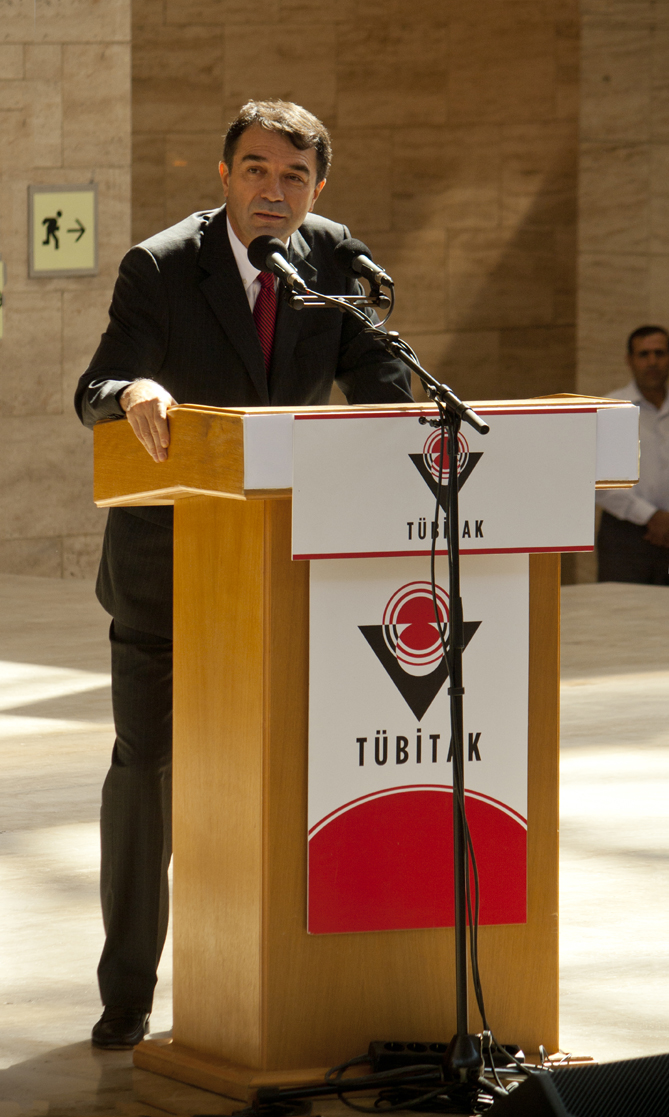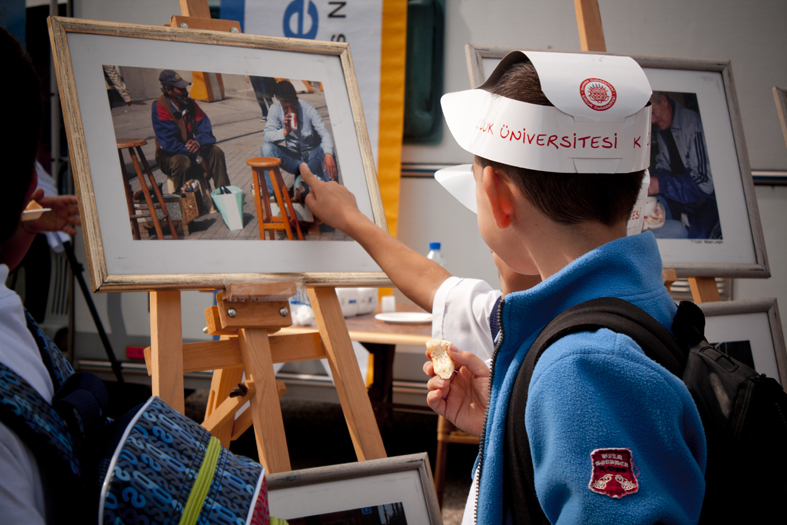Bilkent, TÜBİTAK Host "Science Culture" Event

On Friday, September 24, Bilkent University hosted the European Researchers' Night (ERN), an event celebrated in 200 European cities simultaneously. TÜBİTAK organized Turkey's event. The ERN event aims to promote scientific research among young people and to emphasize the appeal of being a researcher and viewing the world scientifically.
 The ERN addressed everyone, from seven to seventy, but especially sought to engage students who will be the scientists of the future. TÜBİTAK President Prof. Nüket Yetiş explained that the goal of the organization was to introduce the young to the beautiful world of science.
The ERN addressed everyone, from seven to seventy, but especially sought to engage students who will be the scientists of the future. TÜBİTAK President Prof. Nüket Yetiş explained that the goal of the organization was to introduce the young to the beautiful world of science.
In his opening speech at the Bilkent Odeon, Rector Prof. Abdullah Atalar highlighted curiosity as the prime mover of science. He also discussed rapid development of technology and shared a moment from his university years to emphasize how remarkable technological change can happen in a relatively short time. Prof. Atalar recalled that his one-month allowance would buy only a single transistor when he was a student.
Today, anyone can buy a radio with hundreds of thousands of transistors for just 10 Lira. At the end of his speech, Prof. Atalar stated that although young people in the West are losing interest in science, scientific curiosity is still very alive in the East. Prof. Atalar predicts that the East to West brain drain will soon reverse course. One of the most interesting activities was Prof. Ekmel Özbay's talk on nanotechnology. Students from various schools joined the activity to see the man who, as was promoted in the program worked on the development of Harry Potter's famous invisibility cloak. Additionally, Assistant Professors Uluç Saranlı (Bilkent University),  Afşar Saranlı (METU), and Yiğit Yazıcıoğlu (METU) presented Turkey's first multi-legged robot "SensoRHex" to the young students. Assoc. Prof. Bilge Demirköz, who participated in the Big Bang experiment at the Large Hadron Collider in Cern, Switzerland, responded to questions about the creation of the earth. In addition, program designers scheduled events to appeal to the non-scientific audience. Scheduled were successful talks on the philosophy of science, Newton's psychosis, archaeology, electromagnetism, science and education in the Ottoman era, and energy politics.
Afşar Saranlı (METU), and Yiğit Yazıcıoğlu (METU) presented Turkey's first multi-legged robot "SensoRHex" to the young students. Assoc. Prof. Bilge Demirköz, who participated in the Big Bang experiment at the Large Hadron Collider in Cern, Switzerland, responded to questions about the creation of the earth. In addition, program designers scheduled events to appeal to the non-scientific audience. Scheduled were successful talks on the philosophy of science, Newton's psychosis, archaeology, electromagnetism, science and education in the Ottoman era, and energy politics.
In addition to the talks, there were many activities to show how science can be fun. In workshops andexhibitions, visitors had the opportunity to build small robots, watch an astronomical display in the planetarium,  fold origami, view themselves using magic mirror software, observe the sun, examine a hydrogen car, and most importantly, meet with the leading researchers in Turkey.Everything was planned in detail to promote a fun science culture and to engage the young in scientific thinking. After the workshops, Radio Bilkent organized a DJ party that lasted until midnight. Bilkent's hosting of this remarkable event attracted thousands of visitors and was hugely successful in spreading the view that science culture is accessible and fun, especially to the young.
fold origami, view themselves using magic mirror software, observe the sun, examine a hydrogen car, and most importantly, meet with the leading researchers in Turkey.Everything was planned in detail to promote a fun science culture and to engage the young in scientific thinking. After the workshops, Radio Bilkent organized a DJ party that lasted until midnight. Bilkent's hosting of this remarkable event attracted thousands of visitors and was hugely successful in spreading the view that science culture is accessible and fun, especially to the young.
BY İSMAİL UYANIK (EE/VI)
Bilkent News